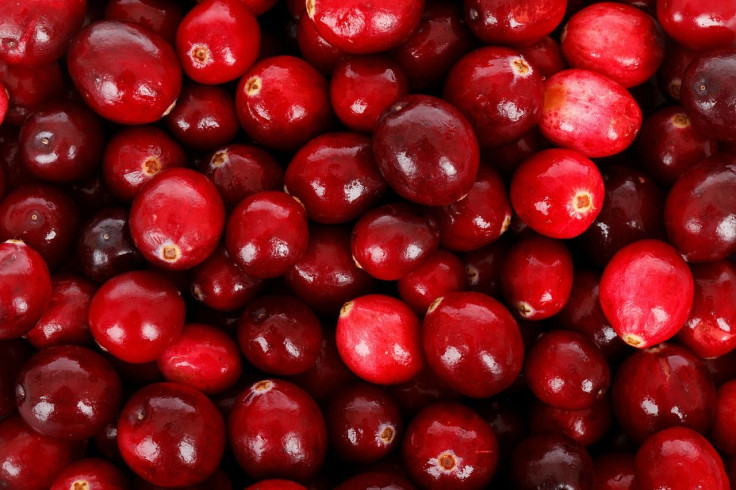Health Benefits Of Cranberries: Whether It's Juice Or Dried, Study Shows The Fruit Improves Gut, Heart, And Brain Health
Cranberries: We often consume them in the form of juice or dried snacks, their tangy bitterness a refreshing taste. And while cranberries have been proven in plenty of past studies to treat urinary tract infections (UTI), they may have benefits for other parts of our bodies, including our cardiovascular, immune, and brain health, according to a new study.
The study aimed to examine specific compounds in cranberries that could have a whole-body effect; like polyphenols, antioxidants that have been linked to a variety of health benefits like improved kidney function, heart health, and circulation. Polyphenols are anti-inflammatory, and can be found in other foods and beverages like green tea, coffee, and red wine. Most berries like raspberries, blackberries, blueberries, strawberries, plums, and black elderberries are also high in polyphenols.
“The bioactives in cranberry juice, dried cranberries and a variety of other cranberry sources have been shown to promote an array of beneficial health effects,” said Jeffrey Blumberg, of the Jean Mayer USDA Human Nutrition Research Center on Aging at Tufts University, in a press release. “Given the complex nature and diversity of compounds found in berry fruits and how they interact with each other, I believe we have only scratched the surface when it comes to identifying the potential power of the cranberry.”

In the study, the researchers found that cranberry compounds showed potential in boosting the gut microbiome, immune system, and cardiovascular health. They also found that cranberry products could help blood pressure, circulation, and blood lipid levels. In particular, low-calorie and unsweetened cranberry juice or dried cranberries showed the ability to manage blood sugar, or glucose, for people with type 2 diabetes.
“It has been established that cranberries rank high among the berry fruits that are rich in health-promoting polyphenols,” said Blumberg in the press release. “But now, recent investigations have shown that the cranberry polyphenols may interact with other bioactive compounds in cranberries that could protect the gut microbiota, and provide antioxidant and anti-inflammatory functions that benefit the cardiovascular system, metabolism and immune function.”
More research will be needed to examine the full effect of cranberries, but for now you can stick to dried cranberries or unsweetened cranberry juice to enjoy the potential benefits of those antioxidants.
Source: Blumberg J, Basu A, Krueger C, Lila M, Neto C, Novotny J. Impact of Cranberries on Gut Microbiota and Cardiometabolic Health: Proceedings of the Cranberry Health Research Conference 2015. Advances in Nutrition , 2016.



























